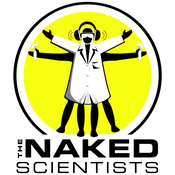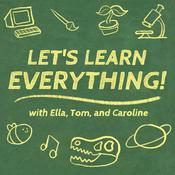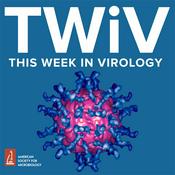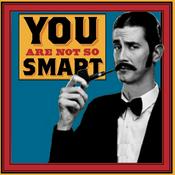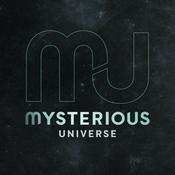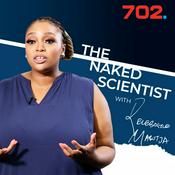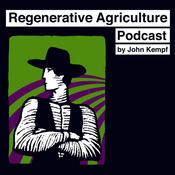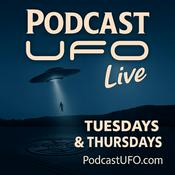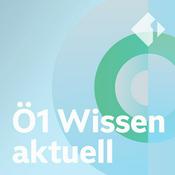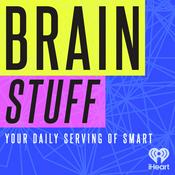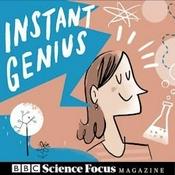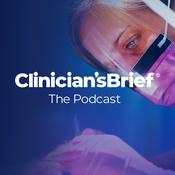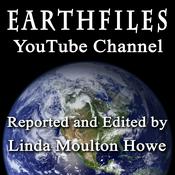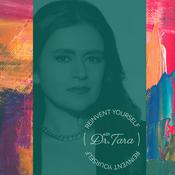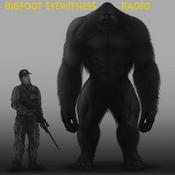295 episodes
- “The major pitfall of machine learning of any kind is to be overly confident in the results. We run the risk of garbage in gospel out.”
This discussion offers a rare chance to go a little deeper into a Leading Edge article and hear directly from the authors about the thinking behind their workflow. Satinder Chopra and Kurt Marfurt walk through how unsupervised machine learning, careful attribute selection, and simple preprocessing steps can reveal subtle channel features in a deepwater New Zealand example. It feels less like a theory lesson and more like practical guidance on using machine learning as a helpful partner in everyday seismic interpretation.
KEY TAKEAWAYS
> Small workflow choices have big impact. Clean input data, thoughtful attribute selection, and simple normalization steps often determine whether machine learning highlights geology or just amplifies noise.
> The value is in the combination of tools and judgment. Unsupervised methods quickly expose patterns, but interpreters still need to compare results with seismic sections, wells, and regional context to confirm what is real.
> PCA and SOM make complex attribute sets easier to explore. By reducing dozens of attributes into clearer clusters, they help interpreters see channel shapes and reservoir variability that might otherwise be overlooked.
LINKS
* Read the December 2025 special section - https://pubs.geoscienceworld.org/tle/issue/44/12
* Seismic characterization with unsupervised machine learning applications for facies classification by Satinder Chopra and Kurt Marfurt - https://doi.org/10.1190/tle44120934.1
ABOUT SEISMIC SOUNDOFF
Seismic Soundoff showcases conversations addressing the challenges of energy, water, and climate. Produced by the Society of Exploration Geophysicists (SEG) and hosted by Andrew Geary of 51 features, these episodes celebrate and inspire the geophysicists of today and tomorrow. Three new episodes monthly. See the full archive at https://seg.org/resources/podcast/. - “I think that for geophysicists out there, people need to realize that it's an integrated career path. You can't separate the geophysics from the HPC anymore, if we ever did to begin with.”
High-performance computing is becoming more important as seismic data grows in size and complexity. This episode highlights the January The Leading Edge special section on high-performance computing. Guest editors Madhav Vyas and Elizabeth L’Heureux share their perspective on GPUs, CPUs, AI tools, and better algorithms in geophysics, and they stress that future success depends on combining geophysical knowledge with strong computational skills.
KEY TAKEAWAYS
> Modern seismic imaging depends on both advanced physics and powerful, well-chosen computing hardware.
> Data movement and system architecture can limit performance as much as raw processing speed.
> Geophysicists increasingly need programming and computational science skills alongside domain expertise.
LINKS
* Read the January 2026 special section, High-performance computing in geophysics - https://pubs.geoscienceworld.org/tle/issue/45/1
* Introduction to this special section: High-performance computing in geophysics by
Madhav Vyas; Elizabeth L’Heureux; Raj Gautam - https://doi.org/10.1190/tle-4501-SS01
ABOUT SEISMIC SOUNDOFF
Seismic Soundoff showcases conversations addressing the challenges of energy, water, and climate. Produced by the Society of Exploration Geophysicists (SEG) and hosted by Andrew Geary of 51 features, these episodes celebrate and inspire the geophysicists of today and tomorrow. Three new episodes monthly. See the full archive at https://seg.org/resources/podcast/. - “This project really bridged the gap that we get from just learning in university and actually doing it in real life. It is actually making an impact on society.”
Stella Eulia Andoka and Michael Partogi share how their student team used applied geophysical tools to investigate groundwater contamination affecting more than 2,600 families living near the Cipayung landfill in Indonesia. With support from the SEG Foundation and Geoscientists Without Borders, the project expanded beyond data collection to include community education and engagement with residents, schools, and local decision-makers. Their work shows how resourceful, student-led teams can deliver meaningful, real-world impact through applied geoscience.
KEY TAKEAWAYS
> Student-led geophysics projects can have a direct impact on community awareness and local decision-making.
> Modest funding can deliver strong returns when teams work creatively and efficiently.
> Applied geophysics becomes more powerful when paired with education and community trust.
LINKS
* Learn more about this GWB project at https://seg.org/gwb_projects/indonesia/
* Donate to the SEG Foundation at https://seg.org/donate/
ABOUT SEISMIC SOUNDOFF
Seismic Soundoff showcases conversations addressing the challenges of energy, water, and climate. Produced by the Society of Exploration Geophysicists (SEG) and hosted by Andrew Geary of 51 features, these episodes celebrate and inspire the geophysicists of today and tomorrow. Three new episodes monthly. See the full archive at https://seg.org/resources/podcast/. - “Deep learning is ubiquitous in data processing. The question is whether we have the courage to change the way we work.”
Yangkang Chen discusses how deep learning has moved from experimentation to production in seismic processing and earthquake monitoring. Drawing on a decade-long effort to build an operational AI-driven monitoring system, he explains why tasks like first-arrival picking, velocity analysis, denoising, and reconstruction are especially well suited for deep learning. Yangkang emphasizes that success depends not just on algorithms, but on benchmarks, stability, teamwork, and trust. He also highlights how open and reproducible research lowers barriers for adoption and helps geophysicists apply AI confidently in real workflows.
KEY TAKEAWAYS
> Deep learning excels at repetitive, label-intensive seismic tasks that are slow and inconsistent using traditional methods.
> Operational AI requires trust, built through benchmarks, validation, and a clear understanding of model behavior.
> Open and reproducible workflows accelerate adoption, collaboration, and innovation across the geophysics community.
Register for his course, Deep learning for revolutionizing seismic data processing, on March 24-25, 2026 at https://seg.org/shop/product/?id+=product&id=5c3b6821-549d-f011-b41b-7c1e521913ef.
ABOUT SEISMIC SOUNDOFF
Seismic Soundoff showcases conversations addressing the challenges of energy, water, and climate. Produced by the Society of Exploration Geophysicists (SEG) and hosted by Andrew Geary of 51 features, these episodes celebrate and inspire the geophysicists of today and tomorrow. Three new episodes monthly. See the full archive at https://seg.org/resources/podcast/. - “Oil company management has to understand that its business is essentially a technology business. It's not a marketing business.”
In this episode of Seismic Soundoff, Andrew Geary speaks with Dr. Leon Thomsen about his memoir, “‘Surely You’re Joking, Mr. Thomsen!’: Adventures of a Petroleum Scientist,” and a career that helped redefine applied geophysics.
Leon reflects on the experiences that shaped his scientific mindset, from early exposure to field crews, to formative lessons in geology at Caltech, to decades of research in academia and industry. He explains how curiosity-driven exploration led him to recognize the importance of seismic anisotropy and shear-wave technology, work that ultimately carried trillion-dollar implications for hydrocarbon exploration.
The conversation also explores why transformative ideas often struggle inside large organizations, how a lack of technological literacy in management can lead to missed opportunities, and why applied science can be every bit as creative and demanding as pure research.
Looking ahead, Leon shares his perspective on the future of applied geophysics, including opportunities in fracking optimization, carbon sequestration monitoring, and subsurface hydrogen exploration, and offers encouragement to young scientists preparing to navigate the energy transition.
KEY TAKEAWAYS
> Energy is a technology business: Long-term success depends on leadership that understands and trusts science, not just short-term metrics.
> Applied science is real science: Solving practical problems can be as intellectually challenging and rewarding as purely theoretical work.
> The next frontier is subsurface innovation: Geophysics will play a critical role in fracking efficiency, CO₂ monitoring, and hydrogen exploration during the energy transition.
LINKS
* Buy Leon's memoir - https://seg.org/shop/product/?id=fe4953e4-cc89-f011-b4cb-7c1e527dc295
* Buy his previous book, "Understanding Seismic Anisotropy in Exploration and Exploitation" - https://pubs.geoscienceworld.org/seg/books/book/1042/Understanding-Seismic-Anisotropy-in-Exploration
* Read Leon's award-winning article: "A logical error in Gassmann poroelasticity" - https://www.earthdoc.org/content/journals/10.1111/1365-2478.13290
ABOUT SEISMIC SOUNDOFF
Seismic Soundoff showcases conversations addressing the challenges of energy, water, and climate. Produced by the Society of Exploration Geophysicists (SEG) and hosted by Andrew Geary of 51 features, these episodes celebrate and inspire the geophysicists of today and tomorrow. Three new episodes monthly. See the full archive at https://seg.org/resources/podcast/.
More Science podcasts
Trending Science podcasts
About Seismic Soundoff
Seismic Soundoff showcases conversations addressing the challenges of energy, water, and climate. Produced by the Society of Exploration Geophysicists (SEG) and hosted by Andrew Geary of 51 features, these episodes celebrate and inspire the geophysicists of today and tomorrow. Three new episodes monthly.
Podcast websiteListen to Seismic Soundoff, Radiolab and many other podcasts from around the world with the radio.net app
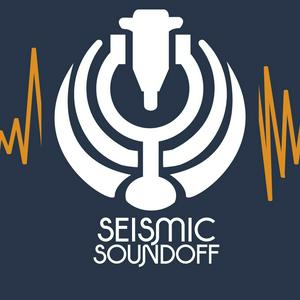
Get the free radio.net app
- Stations and podcasts to bookmark
- Stream via Wi-Fi or Bluetooth
- Supports Carplay & Android Auto
- Many other app features
Get the free radio.net app
- Stations and podcasts to bookmark
- Stream via Wi-Fi or Bluetooth
- Supports Carplay & Android Auto
- Many other app features


Seismic Soundoff
Scan code,
download the app,
start listening.
download the app,
start listening.





